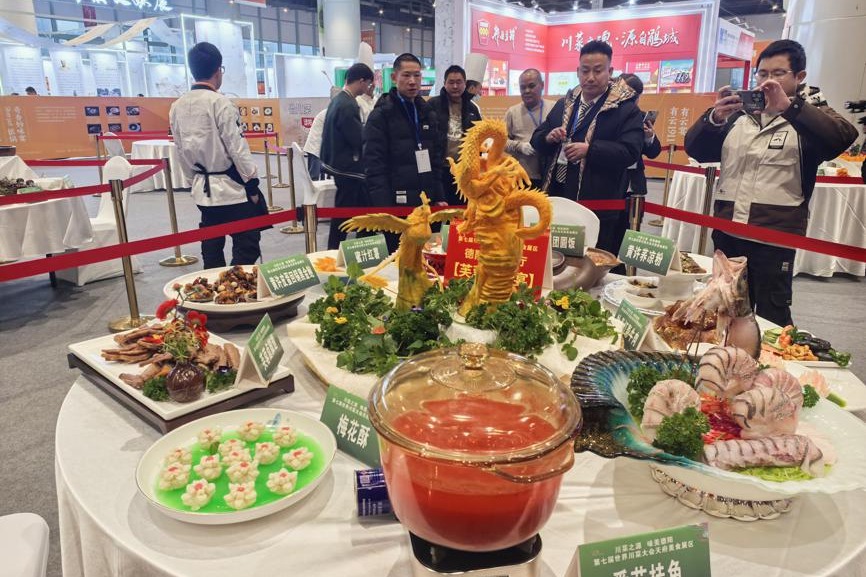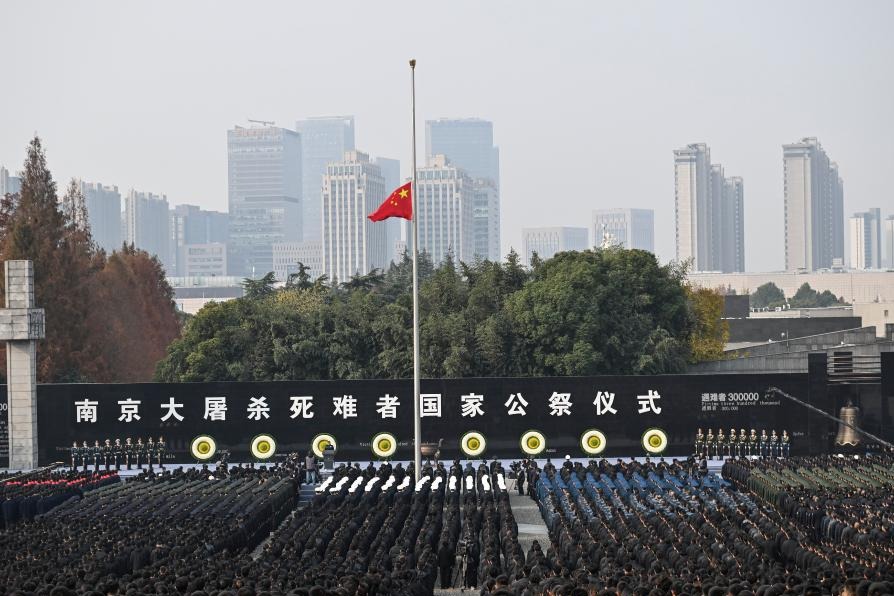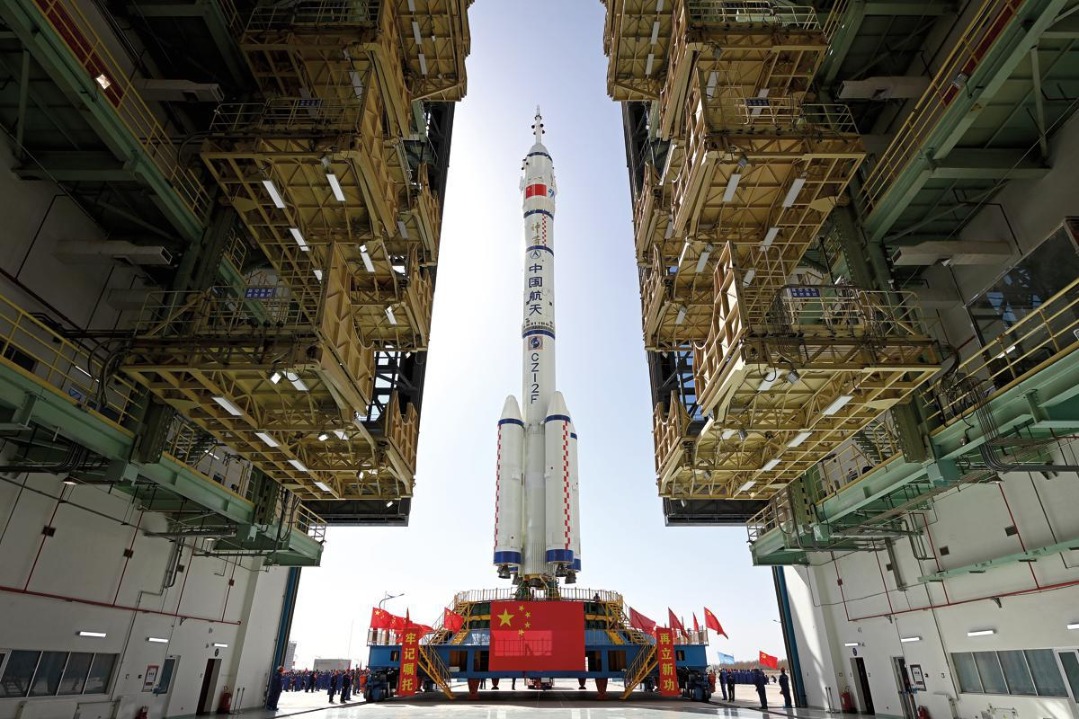Xi's APEC trip to pilot China-US ties, contribute to regional, global development


BEIJING -- At the invitation of US President Joe Biden, Chinese President Xi Jinping will attend a China-US summit meeting, and the 30th Asia-Pacific Economic Cooperation (APEC) Economic Leaders' Meeting scheduled for next week in San Francisco.
In the face of complex international landscapes and at a time when China-US relations are at a critical crossroads, Xi's upcoming travel to the United States has drawn worldwide attention.
KEEPING TIES ON TRACK
As the world's two largest economies, China and the United States, with their interests closely interwoven, account for more than one-third of the global economy, nearly a quarter of the world's population, and about one-fifth of global trade.
Head-of-state diplomacy plays an irreplaceable strategic role in growing bilateral ties. Last November, Xi and Biden met in Bali, Indonesia, and reached a series of important common understandings.
Xi has stressed that China is ready to promote mutually beneficial cooperation with the United States based on the three principles of mutual respect, peaceful coexistence and win-win cooperation. "Under the current circumstances, China and the United States share more, not less, common interests," he said at the Bali meeting.
China always believes that the common interests of China and the United States far outweigh their differences, and the respective success of China and the United States is an opportunity rather than a challenge to each other, Xi said.
Deeming peace and US-China cooperation critical, former US Secretary of State Henry Kissinger holds that partnership between the two countries is in the interests of the two and the world at large.
In the first half of this year, China-US relations went through twists and turns. The US words and deeds harming China's interests have all seriously deviated from the track set by the two presidents.
Since June this year, senior US officials including Secretary of State Antony Blinken, Treasury Secretary Janet Yellen and Commerce Secretary Gina Raimondo have visited China in succession. The talks between China's special envoy for climate change Xie Zhenhua and his US counterpart, John Kerry, in California reached positive outcomes. The two countries have set up economic and financial working groups and other exchange mechanisms.
At the end of October, Chinese Foreign Minister Wang Yi visited the United States, met with Biden and held talks with US political, strategic and business communities figures. He Lifeng, vice premier of the State Council and Chinese lead person for China-US economic and trade affairs, is visiting the United States from Nov 8 to 12.
For the first time, the United States sent a high-level official delegation to the just-concluded sixth China International Import Expo (CIIE). High-level interactions have been on the increase, and bilateral relations have shown positive signs of stabilizing.
The foundation of China-US relations lies in the people. From US entrepreneurs visiting China, to "Bond with Kuliang: 2023 China-US People-to-People Friendship Forum," and from the delegation of US Flying Tigers visiting China, to the fifth China-US Sister Cities Conference successfully held, the Chinese and American people have shown goodwill and a deep friendship, injecting impetus into bilateral friendship and cooperation.
Facts have proven that the mutually beneficial cooperation remains a strong driving force, and the foundation of people-to-people exchanges lies deep. To keep communication open and increase exchanges holds the key to improving China-US relations.
Heba Gamal, a member of the Egyptian Council for Foreign Affairs, said promoting cooperation between China and the United States and easing tensions would help reach a breakthrough in several current world crises.
"Beijing is prepared to find a path that can gather the two countries in a shared vision that will serve both countries and the world," Gamal said.
FACILITATING REGIONAL COOPERATION
At the 29th APEC Economic Leaders' Meeting in the Thai capital of Bangkok last year, Xi called for building an Asia-Pacific community with a shared future.
In living out such an appeal, China, an important economy in the region, has been actively participating in the APEC agenda. Xi has, on multiple occasions, advocated genuine multilateralism and open regionalism, offering China's wisdom to the challenges facing the times, and injecting confidence into the international community.
China's ideas and solutions have been widely recognized by APEC members. Through the Belt and Road Initiative (BRI), China has pooled strength for the common development of Asia-Pacific countries.
The Jakarta-Bandung High-Speed Railway, a flagship project of China-Indonesia cooperation within the framework of the initiative, is the first high-speed railway in Indonesia and Southeast Asia.
Another landmark BRI project put into operation in the Asia-Pacific is the China-Laos Railway, which, since its launch in December 2021, has converted Laos from a landlocked country to a land-linked hub on the Indo-China Peninsula.
Green development is also a priority in the region. Iconic projects for energy conservation and emission reduction abound, such as the China-Pacific Island Countries Climate Action Cooperation Center, and the floating photovoltaic project built by China and Thailand in the Sirindhorn Dam.
"A strong and friendly China will bring positive influence to the region and the world, and will help small and medium-sized countries achieve common development," Singaporean Prime Minister Lee Hsien Loong said.
In the view of Teuku Rezasyah, associate professor of International Relations at Padjadjaran University, Indonesia, the mutually beneficial projects China has promoted in the Asia-Pacific region are a potent testimony to China's pursuit of common prosperity.
BOOSTING GLOBAL PROSPERITY
China has been sharing its development opportunities with the rest of the world by opening wider. The Third Belt and Road Forum for International Cooperation has painted a rosy picture of the high-quality Belt and Road cooperation among participating countries. The sixth CIIE has hosted a record number of exhibitors from across the world.
Centering around high-quality development and high-level opening-up, China is spearheading its own way of modernization, together with the shared progress of the world. Therein lies its quest for peaceful development, mutually beneficial cooperation, and common prosperity.
"The modernization we are pursuing is not for China alone, but for all developing countries through our joint efforts," Xi rightfully observed at the BRI forum held in Beijing last month.
The world is expecting yet more diplomatic events this month. Xi's attendance at the upcoming China-US summit and the APEC gathering will hopefully secure more comprehension of China's growth story, helping the world garner more drivers for development by drawing on China's modernization.
China and the United States, in particular, are widely expected to bring their relations back for the good of the Asia Pacific and the globe.
"Cooperation between the United States and China will strengthen both countries and benefit the world," said Jeffrey Sachs, economics professor and director of the Center for Sustainable Development at Columbia University. "It is correct and indeed possible."
The emerging Global South should not be left behind. At the forthcoming APEC meeting, China will continue to take on its responsibility as a major country, work to make sure that emerging markets and developing countries are better represented and have a greater say in global affairs, and push for further improvement of the global governance system.
Ronnie Lins, director of the China-Brazil Center for Research and Business, expects China to present important proposals in California.
The proposals could help build an Asia-Pacific region that is peaceful, stable, open, and inclusive, making "Asia-Pacific contributions" to global sustainable development, Lins said.
- Beijing adds 3 new metro lines, further easing downtown traffic
- Expats donate blood at Shanghai charity event
- Subway delivering parcels, a boost to low-carbon logistics underway
- Three Gorges project generates 1.7 trln kWh of power
- 5 missing after boat capsizes in Yellow Sea
- China's box office revenue for the upcoming New Year movie season exceeds 1.5b yuan





































